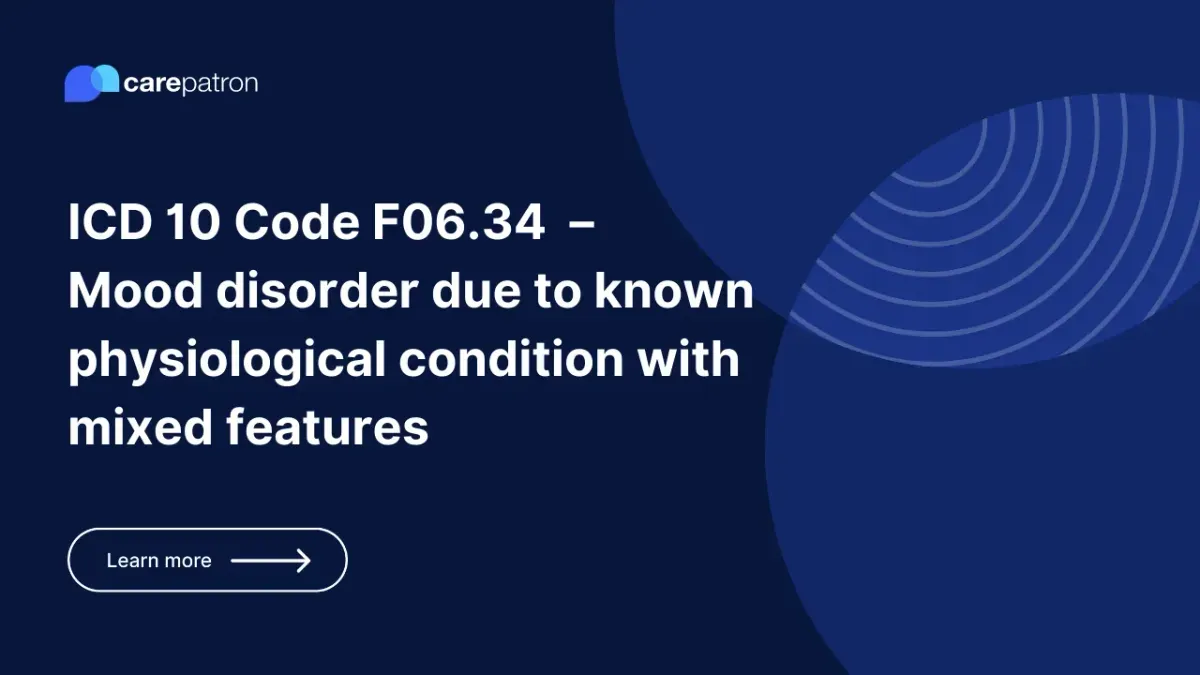
F06.34 – Mood disorder due to known physiological condition with mixed features
Read about F06.34, an ICD-10 code for mood disorder due to a known physiological condition with mixed features.
Use Code
EHR and practice management software
Get started for free
*No credit card required
Free
$0/usd
Unlimited clients
Telehealth
1GB of storage
Client portal text
Automated billing and online payments
